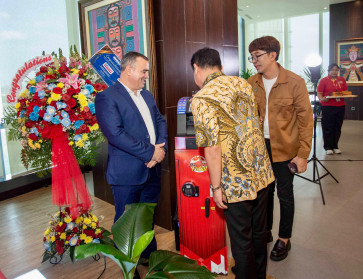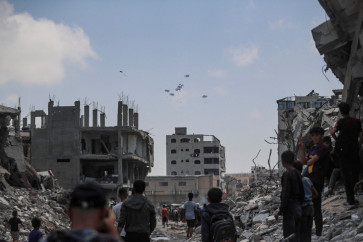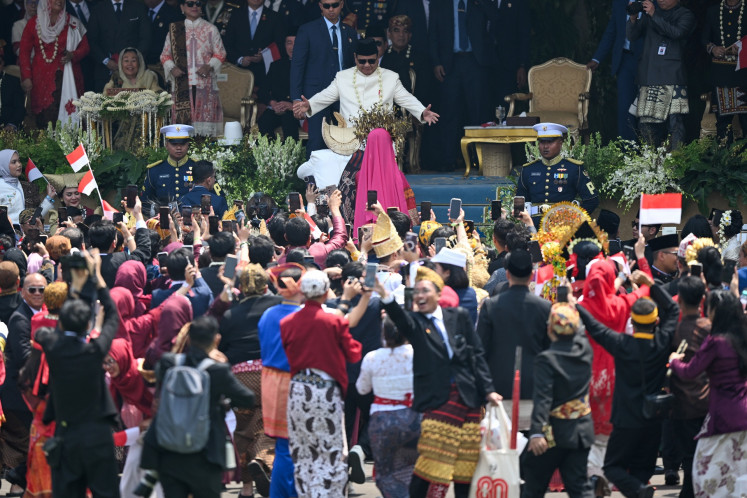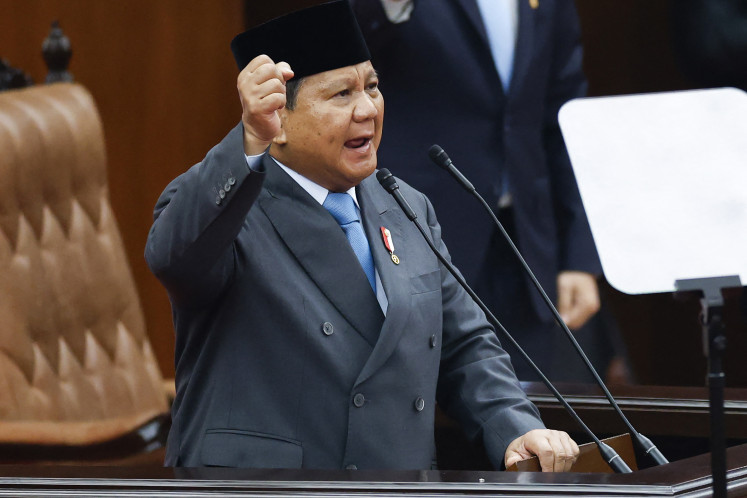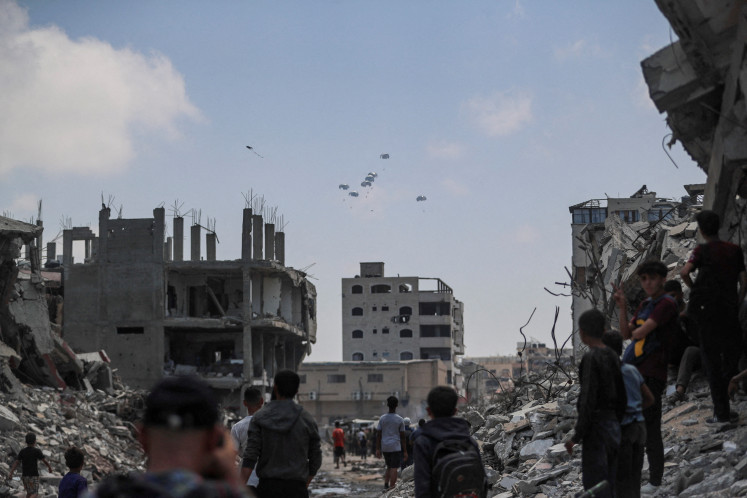Popular Reads
Top Results
Can't find what you're looking for?
View all search resultsPopular Reads
Top Results
Can't find what you're looking for?
View all search resultsSindhi community in Indonesia: Keeping strings connected
Suresh G
Change text size
Gift Premium Articles
to Anyone
S
span class="caption">Suresh G. Vaswani, executive member of the Gandhi Sevaloka (left) with the late former Indian president APJ Abdul Kalam (center, with long grey hair) and members of the Sindhi community in Jakarta when the latter visited Jakarta in 2007 after he finished serving his office term.(Courtesy of GMIS Jakarta)
The Sindhi community in Indonesia represents a group of businesspeople hailing from the province of Sindh, which used to be part of united India until partition in 1947.
Equipped with capital to start up businesses overseas, the community now thrives in different regions, including Southeast Asian countries like Singapore, Hong Kong and Indonesia.
“We are not refugees. We always go overseas with money in order to invest and make a living,” merchant association Gandhi Seva Loka foundation executive member and Gandhi Memorial Intercontinental School (GMIS) chairman Suresh G. Vaswani told The Jakarta Post in an exclusive interview.
Currently, the Indonesian chapter of the community, which represents around 20,000 people, most of whom live in Jakarta, has some of the most prominent businesspeople in the fields of textiles, upholstery and films. In textiles alone, the community controls approximately 75 to 80 percent of market share in Indonesia.
In the film industry, big production houses in the country are also owned by the Sindhis. Examples include MVP Indonesia (formerly known as Multivision Plus) by Raam Punjabi, Rapi Films by Gope Samtani as well as MD Entertainment by Manoj Punjabi.
“The best cotton and muslin are made in India. When you think about indigo blue denims, the indigo also comes from India. So most of the carpets that you see in Indonesia, including prayer carpets, are also manufactured by our merchants,” Vaswani explained.
Meanwhile, community members who are players in the local film scene bring with them the strong cinematic traditions from India to Indonesia.
“In India, it’s hard to make a living as the soil is not as fertile as Indonesia’s, so people work hard. When they celebrate, however, they celebrate in style. They like to do so by watching films, one of the cheapest forms of entertainment there,” he said, tracing the roots of India’s strong attachment to film-making, which is popularly known as Bollywood.
The community’s footprint in Indonesia actually goes back a long way even before the 1947 partition.
“Like the Hadramaut [clan] of the Arabs, we had been working abroad even before partition,” he explained.
The Sindhi people first set foot in Indonesia in around 1840 or 1850 to expand their textile business. At that time, before partition, the non-Muslim merchants were still able to return to their homeland once in every two years.
In the aftermath of partition, however, the area of Punjab was divided into two. The Sindh province in West Punjab, with its predominantly Muslim population, became part of Pakistan and as a result, non-Muslims who were Hindus and Sikhs had to leave the region.
“Wherever we are, we try to be good citizens, because we have no country. We found a new country in Indonesia, so we are integrated into the local communities,” he said.
According to Vaswani, it is relatively easy for the Sindhi community to adapt to the Indonesian way of living as there is a strong affinity between the two cultures.
“Ancient Javanese Hindu-Buddhist kingdoms like Sriwijaya and Majapahit [from the seventh and 14th centuries, respectively], embody many aspects of Indian culture. The Gujarati merchants from India also spread Islam in Indonesia [in the 11th century],” he explained.
One way community members achieve integration with Indonesians is through intermarriage. When combined with their spouses and mixed-race children, the community amounts to 30,000 people.
“We, however, have decided not to dabble in politics because we are too small to become political. We, however, are very active in community service activities,” he said.
Through GMIS, as well as other schools owned by community members across Indonesia, they donate money to around 10 trust funds, including the Rawinala School of Multiple Disabilities and the National Movement for Foster Parents (GNOTA), among others.
Rapi Films owner Gope Samtani, meanwhile, runs the Prem Prakash Mandal foundation, which helps the poor undergo cataract surgery in cooperation with the Cipto Mangunkusumo Hospital in Jakarta.
Meanwhile, to maintain solidarity among community members, the Sindhis hold regular activities at its community center on Jl. Samanhudi, Pasar Baru, Central Jakarta.
“We conduct regular gatherings for prayers every Thursday, a puja [offering] ritual on Mondays, as well as a full-moon gathering once every 15 days,” he said.
The community members also help each other.
“We wouldn’t let our members become destitute. If the parents of members pass away, the community will take care of the funeral, death certificates and other things,” he explained.
The community center in Jakarta also has a subsidized marriage hall open to everybody, including Indonesians.


